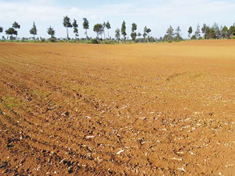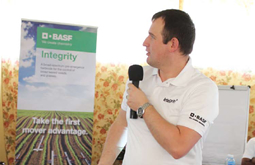Invest in Branding and Direct Marketing
 Consumer desire should always be at the core of any producers branding activity. To that extent, producers or marketers should consider the desires and/or values of their consumers to ascertain the value of various provenance elements against these in order to determine the ultimate value. This has potential to assist with deciding which assets are worthy of greater communication or prominence on packaging.
Consumer desire should always be at the core of any producers branding activity. To that extent, producers or marketers should consider the desires and/or values of their consumers to ascertain the value of various provenance elements against these in order to determine the ultimate value. This has potential to assist with deciding which assets are worthy of greater communication or prominence on packaging.
Branding – What is it?
A brand is a distinguishing symbol, mark, logo, name, word, sentence or a combination of these items that companies use to distinguish their product from others in the market. In simple terms, it is your unique identity that consumers know you by. The identity is communicated through mediums such as packaging, websites, and advertising and, in some cases, farm gate and visitor centres.
A brand is a necessary evil, they add a layer of complexity to the buying decision, but they also allow for routines (‘Ah, there’s my brand’ or, ‘oh yes, I’ve heard of that one’); such habits make buying easier- automatic even. A brand is how food producers can strive to build a loyal following but also what consumers use to recommend or discuss with others.
Read more ...
Reasons for Farmers to Test their Soil
 Farmers will know the current condition of their soil and how to improve it
Farmers will know the current condition of their soil and how to improve it
Soil fertility is determined by the soil’s chemical, physical and biological properties. Properties such as soil texture, color and structure are visible to the eye. However you can’t see the chemical composition of soil. Therefore it needs to be measured. That is why soil sampling is essential.
Soil tests are used to determine the soil’s nutrient content and pH level. With this information you can define the exact type and quantity of fertiliser needed to be applied to improve your soil. This is important because fertile soils are necessary to grow healthy crops. Soil testing before applying fertilisers is recommended in order to determine the soils status and nutrient need. Only then you know the exact type and quantity of fertiliser you need to use. If you apply fertiliser without knowing what your soil needs, you risk using too little fertiliser (under-fertilisation) and not achieving optimal yield. If you apply too much fertiliser (over-fertilisation) or apply it at the wrong time, there is a chance of “fertiliser burn” - scorching of plant foliage as a result of excess.
Read more ...
 During his tours in the country, Yariv Kedar learned that more than four million people were facing starvation in Kenya, he was surprised, as the country should be agriculturally rich and food secure.
During his tours in the country, Yariv Kedar learned that more than four million people were facing starvation in Kenya, he was surprised, as the country should be agriculturally rich and food secure. Consumer desire should always be at the core of any producers branding activity. To that extent, producers or marketers should consider the desires and/or values of their consumers to ascertain the value of various provenance elements against these in order to determine the ultimate value. This has potential to assist with deciding which assets are worthy of greater communication or prominence on packaging.
Consumer desire should always be at the core of any producers branding activity. To that extent, producers or marketers should consider the desires and/or values of their consumers to ascertain the value of various provenance elements against these in order to determine the ultimate value. This has potential to assist with deciding which assets are worthy of greater communication or prominence on packaging. Farmers will know the current condition of their soil and how to improve it
Farmers will know the current condition of their soil and how to improve it A new pre-emergent and a new postemergent herbicide will be available for maize farmers in 2018. BASF launched the two herbicides in a well attended maize farmers’ trainings in Kitale and Eldoret. Integrity® is a broad-spectrum pre-emergence herbicide for the control of broad leaved weeds and grasses and Stellar Star® a broad spectrum post-emergence herbicide, specifically formulated for weed control in maize farming were introduced at a time when most farmers are calling for better solutions in their weed management programs.
A new pre-emergent and a new postemergent herbicide will be available for maize farmers in 2018. BASF launched the two herbicides in a well attended maize farmers’ trainings in Kitale and Eldoret. Integrity® is a broad-spectrum pre-emergence herbicide for the control of broad leaved weeds and grasses and Stellar Star® a broad spectrum post-emergence herbicide, specifically formulated for weed control in maize farming were introduced at a time when most farmers are calling for better solutions in their weed management programs. The Cereals Magazine spoke to Corteva Agriscience™ Agriculture Division of DowDuPont Chief Operating Officer Mr. James C. Collins in a round table meeting with journalists. We engaged him on the state of agriculture and how technology can be used to boost output and support food security while taking care of emerging environmental and health concerns. He was in Nairobi accompanied by other senior company staff from Africa and Middle East region.
The Cereals Magazine spoke to Corteva Agriscience™ Agriculture Division of DowDuPont Chief Operating Officer Mr. James C. Collins in a round table meeting with journalists. We engaged him on the state of agriculture and how technology can be used to boost output and support food security while taking care of emerging environmental and health concerns. He was in Nairobi accompanied by other senior company staff from Africa and Middle East region.